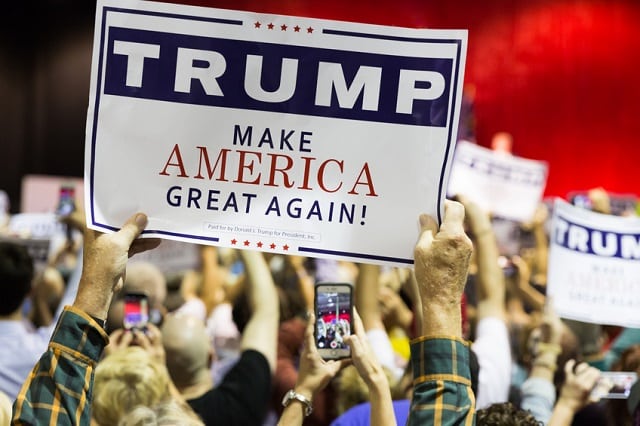Less is more
Witold Bahrke, a senior macro strategist at Nordea Asset Management, says that its expectation that ‘Trumponomics’ would not be a game changer from a pure economic standpoint has proven to be largely correct.
“Nevertheless, it seems increasingly likely we will see some form of fiscal easing in the shape of tax cuts in the coming quarters,” he says. “Despite all the intra-GOP wrangling, too much is at stake to let this fail completely, as the mid-term elections are within reach. That said, we expect a watered-down version of what has been indicated from the Trump-administration since the election.”
For Bahrke this might be a positive development from a business cycle perspective, as he says the US economy is operating at or above full capacity, with the unemployment rate at its lowest level since the tech bubble.
“Firstly, this suggests fiscal stimulus is not exactly what the US economy needs at the current juncture,” he says. “Secondly, it means significant fiscal stimulus is likely to lead to higher wage growth rather than more jobs, because there simply is a shortage of qualified hands available to work.”
On the other hand, Bahrke cautions that higher wage growth would likely squeeze corporate margins and lead to a rolling over of the profit cycle, as well as force the Federal Reserve to hike interest rates at least four times this year and next.
“Given we still have a very low neutral rate and a ‘speed limit’ for interest rates, a degree of monetary tightening would most likely cause the yield curve to invert and mark the end of the current business cycle,” he says.
“Our take on Trumponomics one year into Trump’s presidency is definitely ‘less is more’, especially when it comes to the longevity of the business cycle.”
Dangers of short-termism
David Osfield, manager of the Amity International Fund, says that a longer term consequence of Trump’s limited policy success is the exposure of corporate short-termism.
He notes that many companies acted on Trump policy proposals – such as ‘the wall’ – before it became clear whether these were viable at all.
“The willingness of management to change capital allocations revealed the dangers of allocating on political grounds – particularly as the capital cycle is much longer than the four-year presidential term,” Osfield says.
“This short-termism reflects poorly on company management and suggests they may not be allocating sufficient consideration to the sustainability of their business models in the long term.”
In terms of policy, Osfield says Trump’s tax reform looks like it has legs, which he argues is not priced into the dollar at the moment. However, he adds if reforms come through in their current form, it could enable the Fed to be more hawkish.
He says: “Although we have exposure to repatriation benefits through a diverse range of stocks and sectors, we would attach more importance to what our investee companies do with excess cash, rather than the process of bringing it back onshore.”







